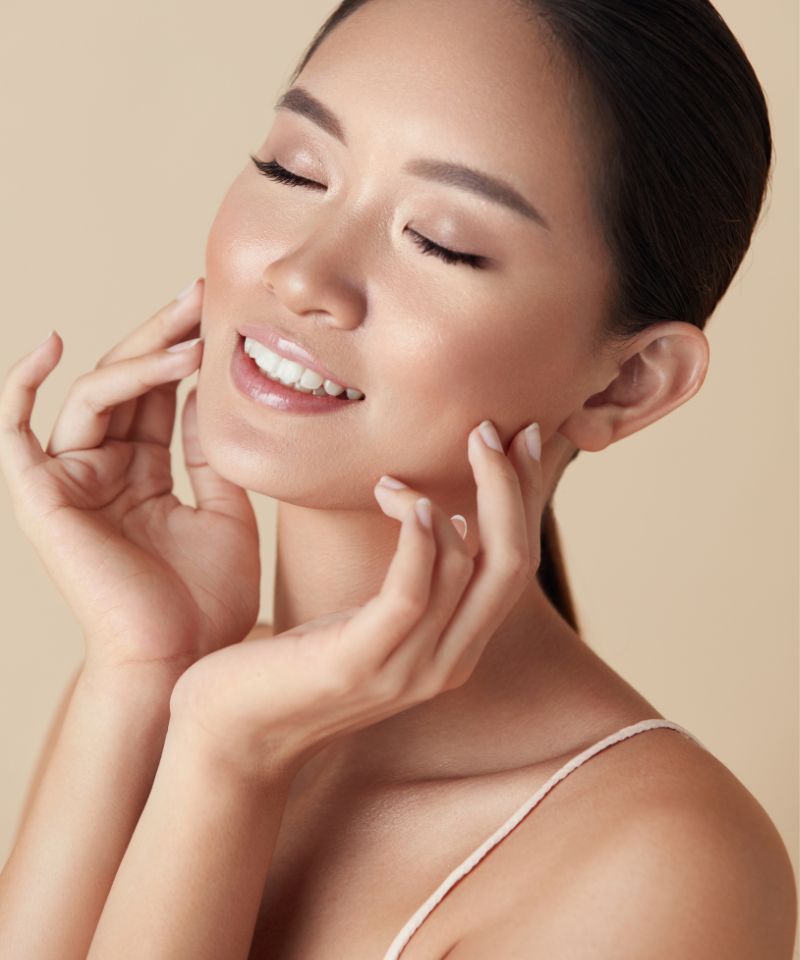Accutane is one of the most effective acne treatments out there, with the ability to reduce and eliminate the most severe acne on the face and body.
However, just like with everything else, Accutane takes time to work and usually comes with several uncomfortable side effects.
This is why many users wonder if they can use topical acne medication while on Accutane to speed up the healing process and shorten the duration of the treatment and its side effects.
However, while this might make sense for many, it is not recommended to use topical acne treatments while on Accutane due to their ability to exacerbate some of the drug’s side effects and prolong healing instead of shortening it.
Therefore, in this article, I will talk about Accutane, how it works, what side effects you should expect and how to mitigate them, and why using topical acne medication while on this drug is bad.

What is Accutane?
Accutane is the brand name for the medication known as isotretinoin, an oral medication used to treat severe acne on the face and body.
It is also commonly prescribed to people whose acne has resisted previous treatments, such as benzoyl peroxide, adapalene, and antibiotics, as well as those dealing with severe acne in larger areas such as the chest and back.
How Accutane Works to Treat Acne?
Accutane works by inhibiting the function of the oil-producing glands by reducing the gland’s size. Once the gland’s size is reduced, it will produce less oil.
This can help acne since excess oil is essentially food for the acne-causing bacteria that live on the skin; therefore, lack of it will cause the bacteria to become starved, thus minimizing proliferation and eventually minimizing acne.
The Side Effects of Accutane
While Accutane is exceptionally efficient in treating severe acne on the face and body, this medication is strong and can cause some side effects.
Some of the most common side effects of Accutane include:
- Dry skin.
- Flaking and peeling.
- Redness and irritation.
- Chapped lips.
- Dry nose and nosebleeds.
- Skin rash.
- Dry eyes.
- Joint pain.
- Headaches.
- Hair loss.
- Depression and mental health issues.
The most common side effects of taking Accutane include dry skin, chapped lips, and dry eyes.
Additionally, sometimes, people that are going through a long course of Accutane can experience joint pain, stomach aches, headaches, and hair loss, but these are rarer side effects that don’t happen to most people.
Finally, many people say that those taking Accutane are also at a higher risk of developing depression, suicidal thoughts, and other mental health issues; however, the research supporting this is still lacking.
The little research there is on the potential decrease in mental health while on Accutane is individuals reporting their own subjective experiences with developing depression and mental health struggles.
However, on the other hand, others have reported improvement in their mental health due to their skin clearing up, which has resulted in increased confidence and self-esteem.
Therefore, while Accutane might have the ability to exacerbate mental health issues for some, it can also have the opposite effect for others, so predicting the potential for developing mental health issues while on Accutane is too unreliable to make any definitive statements.
Can You Use Topical Acne Medication While on Accutane?
While Accutane is one hell of a drug when it comes to tackling even the most severe forms of acne on the face and body, it takes time to work.
This is why many people wonder if using topical acne medication while on Accutane can help speed up the recovery process and minimize the appearance of acne faster.
However, most topical acne medications are contraindicated with Accutane due to the potential for skin irritation, dryness, and further exacerbation of any existing side effects.
Some topical acne medications, such as benzoyl peroxide and adapalene, work by shedding the outermost layer of dead skin cells on the skin’s surface and increasing cellular turnover, which, when paired up with Accutane, a medication that dries up oil production, can cause overly dry skin and long-term barrier damage.
This will not speed up healing, but on the contrary, it can slow it down due to harming the skin barrier, which is a thin layer made up of lipids that protect the skin from damage.
Therefore, the best way to manage acne while on Accutane is to let the medication work its magic while making sure you are nourishing your skin barrier with the simplest skincare routine.
The Potential Risks of Combining Accutane and Topical Acne Treatments
A few common risks and side effects of combining Accutane and topical acne treatments include:
- Damaged skin barrier.
- Dry skin.
- Peeling and flaking.
- Redness and irritation.
- Skin infections.
The Best Skincare Routine During Accutane Treatment

Even if your skin might naturally be oily, Accutane will shrink your oil-producing glands after as little as several weeks of using it, which will change your skin.
This is why you need to have a good skincare routine that will support your current skin needs and doesn’t exacerbate any side effects caused by Accutane.
Therefore, here’s a simple and efficient skincare routine to have during an Accutane treatment and ensure your skin remains healthy and heals faster so that you can enjoy clear skin as quickly as possible:
Gentle Cleanser
During an Accutane treatment, avoid overly foaming cleansers and move toward gentle and emollient-based options that will still do an excellent job at removing impurities from your skin without stripping your barrier and causing your skin to become even drier and more irritated.
A creamy cleanser that looks like an emulsion and doesn’t foam up when in contact with water will be your best option, so make sure to switch it up as soon as you start noticing symptoms of dryness and discomfort.
Hydrating Toner
A toner is an optional step in a skincare routine; however, having a good hydrating toner while your skin is excessively dry during an Accutane treatment can be beneficial.
Hydrating toners will replenish some of that lost moisture, and many also contain soothing components that will relieve irritation and symptoms such as redness, peeling, and flaking, resulting in plumper skin that feels comfortable.
Barrier-Replenishing Moisturizer
Moisturizers that contain barrier-replenishing components such as lipids, ceramides, and fatty emollients will be your go-to while on Accutane, as this type of moisturizer can restore the damaged skin barrier and reduce symptoms such as dryness, flaking, and peeling.
Additionally, you might want to consider opting for a thicker cream formulation with a more occlusive texture than a light lotion or serum, as these are better at trapping moisture and preventing further water loss from the skin.
Sunscreen
By drying out the skin and reducing the production of protective oil, Accutane will make the skin more sensitive to external stimuli such as UV rays, increasing the risk of sunburns, hyperpigmentation, and photodamage.
Therefore, sunscreen is one of the most important products in the skincare routine for anyone undergoing an Accutane treatment.
Sunscreens with an SPF of at least 30 are a must and should be worn every single day, even if it’s cloudy or rainy outside, as UV rays can still penetrate your skin and cause damage.
Therefore, pick a mineral-based sunscreen that contains skin-healing and protective components such as zinc oxide, and consider reapplying it throughout the day if you’re spending an extended period of time in the sun to reduce the risk of skin damage.
Lip Treatment
Finally, every Accutane user knows the medication will cause your lips to be dry, chapped, and cracked.
This is why you should always have a lip treatment nearby and apply it as often as needed throughout the day to keep your lips moisturized and reduce cracks caused by dehydration.
Another pro tip for lip treatments is using them for your nostrils to prevent nosebleeds.
This is why you should consider investing in a lip treatment in a tin container, as this will make it easier to use on both the lips and nostrils without contaminating the formula.

My name is Simone and I am a certified skin specialist. I created this website to teach my readers how to take great care of their skin and I also like to occasionally share my honest opinions on skincare products I’ve tried. You can learn more about me here.
